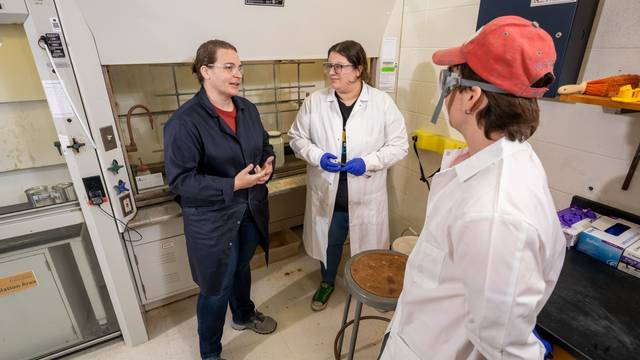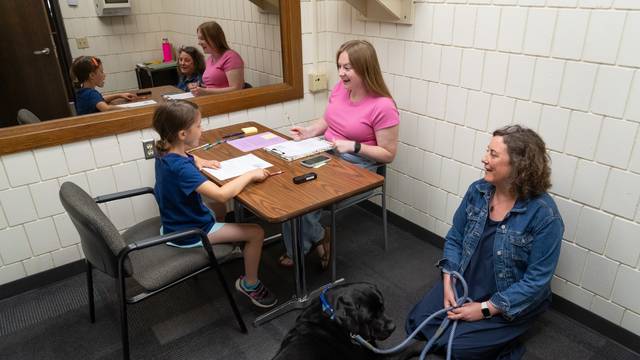Upcoming this fall, the UW-Eau Claire theatre program will release Disruptions: Illusion vs. Reality, a devised Shakespeare production featuring a sonnet from English professor Dr. Dorothy Chan and music by UWEC student Sam Stein.
Believe it or not, the COVID-19 pandemic is an opportunity for the theatre program. “We really wanted to think about - what does this moment offer us educationally? What do we wish we could do during normal years that we could do now?” says director Dr. Jennifer Chapman. “One of the answers that we had to that question was when students study Shakespeare, either in a show or in Acting Styles class, there is almost never enough time to dive really deep into the analysis of the text. There are so many layers of analysis that there’s just not time for that when we’re trying to produce as much work as we try to do in a normal year.”
Another form of art the department seldom produces is devised theatre, a process by which the participants conceive and create the show themselves. “All of the students involved - actors and designers and stage management - were all a part of devising concepts for different Shakespeare scenes that connected that scene to the moment that we are living in today,” Chapman says. “We spent the whole semester creating that, and the students… divided into smaller groups, created concepts for scenes. I had to connect scenes to the challenges that we live in right now, and Arthur [Grothe, associate professor] and I just chose a connecting theme for the whole thing, which is Illusion vs. Reality. It was what we saw in all of the scenes that we selected. But it was the students who developed the depth of exploration of that concept in the scenes themselves.”
Chapman and Grothe saw yet another opportunity: the chance to collaborate with other artists. They sat down with the English department chair, Dr. Jan Stirm, who helped them select Shakespeare scenes. “She then connected us with an English professor who is a poet, Dr. Chan. Dr. Chan’s specialization is sonnets… we told her our idea, and we also expressed to her how we were feeling artistically - so lonely and isolated and wanting to have art be a way that we connect with one another again. And Dr. Chan listened to us carefully and then she wrote, in response to what we talked about, a sonnet for us to use.” Chapman also reached out to Sam Stein, a student who had previously written music for the spring 2020 production of James and the Giant Peach, to return and compose music for this show. “Our students in the arts, particularly our collaborative art forms - we all went into lockdown and many of them were just experiencing so much artistic loneliness,” she says. “I mean, we’re experiencing personal loneliness, but this artistic loneliness is a very unique thing.”
Chapman credits their editors, Rob Mattison and Mike Gehrke from LTS, as one of the reasons why UWEC Theatre has kept going during this past year. “They believe in this university, they believe in our capacity to continue to be creative,” she says.
It’s clear that if a pandemic can’t stop the theatre program, nothing can. “We had to really push ourselves to remember that in moments when we face great obstacles, that not only does art not stop, but that art-making is even more important,” Chapman says. “It is even more important that we reach out to one another and make art together in this state of isolation that we find ourselves. Obstacles are nothing to artists. Obstacles are always the opportunity for an artist to say something, because the artist must always speak in that moment of obstacle. It’s really artists who give us questions to reflect on as we re-conceive our new selves in this new world that we live in.”
The production includes scenes from Shakespeare’s Macbeth, Romeo and Juliet, Richard III, A Midsummer Night’s Dream, Twelfth Night, and As You Like It. The show will stream this fall at varying price points to accommodate budgets during the pandemic.



